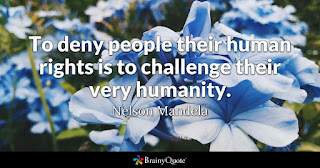The larger-than-life leadership lessons that Dr. King gave the world
that are as important for entrepreneurs today as they were during Dr.
King's life. It's a great way to remember why the banks are really
closed today.
Leadership Lesson One: You Must Have Total Commitment to Your Cause
Dr. King was a visionary. He was a man who had a dream bigger than
the times in which he lived. That is, after all, what real visionary
leaders are all about. His "I Have A Dream" speech brought awareness and
humanity to the national consciousness about civil rights in America.
Dr. King's stance on political activism in a non-violent way made him
a natural leader and an inspirational figure. He led a social movement
of equality during a time when he wasn't supported by most. In fact, he
was threatened and despised by many. But he stayed committed to the
vision he held. Sadly, his leadership and dream ultimately cost Dr. King
his life.

Leadership Lesson Two: Disrupting the Status Quo is Essential for Change
Dr. King is honored and revered today, but he wasn't embraced by
society during his short life. However, Dr. King knew that his dream of
equality (even when equality was not popular) was more important than
the status quo. His actions backed his vision and he shook up the
popular culture of the time. Sometimes doing things completely different
is what's necessary for evolution and innovation.
Leadership Lesson Three: Have A Dream... Then Communicate it and do it
"I am happy to join with you today in what will go down in history as
the greatest demonstration for freedom in the history of our nation,"
spoke Dr. King as he began his address at the Washington Monument. Those
were tall words for a leader to proclaim across an audience of over
250,000 people. But Dr. King had a dream and he couldn't be silent about
it.
Dreaming without doing is for childhood. Real leaders have big
dreams, take big steps to communicate them, and then they go take big
actions! Dr. King's actions made him one of the great leaders of the
20th century, Time Magazine's "Man Of The Year" in 1963 and a Nobel
Peace Prize winner in 1964.













/leadershipskills-56b084493df78cf772cf6ab4.jpg)














